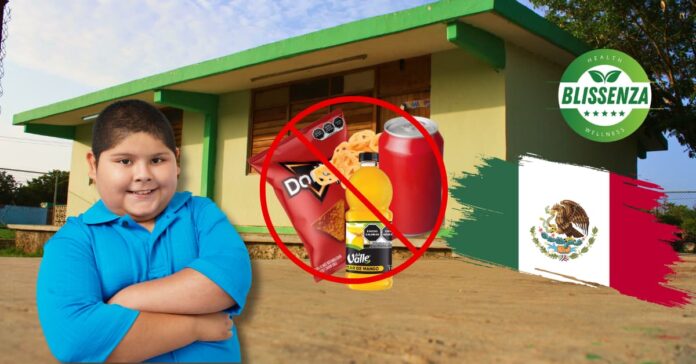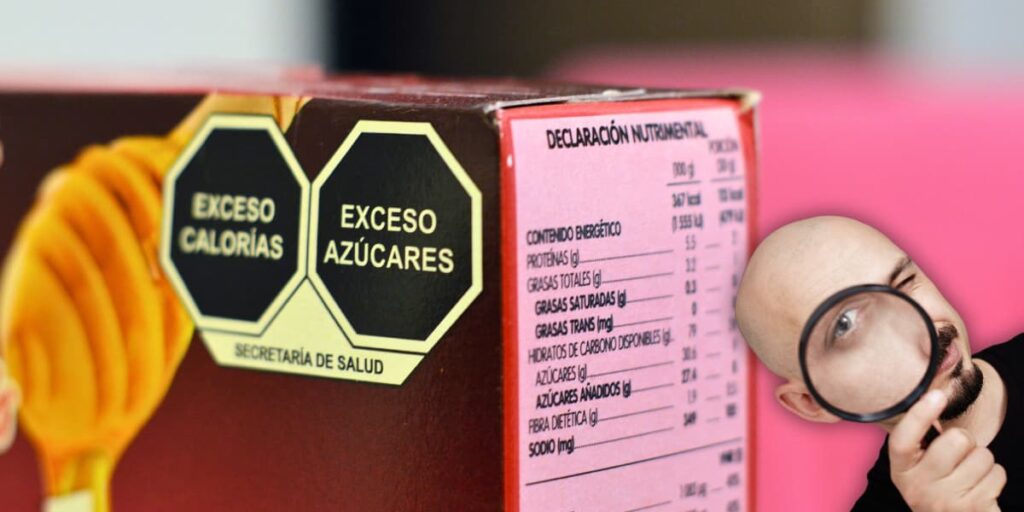On March 29 2025, a groundbreaking change took place in Mexican schools: the federal government officially banned the sale of junk food on school premises. We’re talking about popular snacks like chips, sugary pastries, deep-fried churros soaked in vegetable oils, so-called “juices” that contain just 2% or less real fruit, and even the classic “tortas de jamón”—ham sandwiches that, more often than not, aren’t made with real ham. These items are now completely off-limits in school cafeterias across the country.
This measure is part of Mexico’s national “Vida Saludable” (Healthy Life) strategy (https://vidasaludable.gob.mx), a program aimed at tackling a deeply rooted issue that has the country in a chokehold: childhood and adolescent obesity, which often leads to diabetes and cardiovascular diseases, conditions directly linked to poor dietary habits.
For parents and concerned citizens, this is a move we can’t help but applaud.
It’s a bold, necessary and significant step forward, but let’s be honest: while this is a great start, the deeper problem remains unresolved. Mexico struggles with a pervasive, generational culture of unhealthy eating that continues to pass down from one generation to the next.
A Harsh Mirror: The Role of Parents in Mexico’s Food Culture
Everyday Scenes That Sting: Normalizing Unhealthy Habits
If you were to walk down any street in Mexico, you’d see the reality for yourself: parents buying sugary pastries loaded with artificial dyes as a “lunch” for their kids, children sipping soda as if it were water, and even babies drinking Coca-Cola from their bottles, a practice that normalizes sugary drinks from infancy.
This isn’t an exaggeration; it’s a daily scene across Mexico, for years, the country has failed to educate its children about what real food actually is. Many live in ignorance (or denial) about the fact that ultra-processed products don’t nourish; they harm. How often have you heard a parent justify this with, “It’s what they like,” or “It’s their little joy at school”?
Ignoring the Labels: A Missed Opportunity
The Mexican government introduced front-of-package labeling a few years ago, a system that warns consumers about excessive sugar, artificial sweeteners or caffeine in products, often adding that these items are not recommended for children. This was another commendable effort by the government, but most Mexican parents simply ignore these warnings and continue buying these products just as much as before.
How many parents actually read these labels? How many stop to check the ingredients on a pack of cookies or a “juice” box before handing it to their child? Sadly, very few do.
Alarming Statistics: Mexico Under the Global Spotlight
Meanwhile, the numbers paint a grim picture. According to UNICEF and the Mexican government itself, Mexico holds the unfortunate title of the world leader in childhood obesity and ranks second globally in adult obesity, just behind the United States, which also faces severe challenges (1)(2). Additionally, Mexico is the top consumer of ultra-processed products in Latin America and the fourth highest worldwide (3)(4).
Another striking statistic: between 1984 and 2016, the purchase of ultra-processed foods in Mexican households doubled, while the consumption of unprocessed or minimally processed foods dropped significantly (5). This shift reflects how families have been swayed by aggressive marketing on radio and TV, coupled with the growing availability and accessibility of these products right in their neighborhoods.
Today, 1 in 3 children in Mexico is already obese, reports from the World Obesity Federation’s World Obesity Atlas project a staggering 56% increase in childhood obesity by 2035 if current trends continue (6). For readers outside Mexico, this might sound shocking, but it’s a reality that has been building for decades.
Backlash to the New Law: A Misguided Outcry
When this new law banning junk food in schools took effect, the complaints from parents were swift: “The kids will suffer without their sweets,” “What will they eat at Children’s Day celebrations?” and “I don’t know what to pack for their lunch now.” Seriously? Suffering because they can’t have chips or soda that offer zero nutritional value?
These reactions reveal a deep lack of nutritional education and show how the convenience of ultra-processed foods has overshadowed the willingness to prepare healthier meals at home, meals that can be both delicious and beneficial for their health.
It’s ironic that instead of seeing this regulation as an opportunity to improve children’s diets, many parents view it as an “injustice.” But the real issue is this: if a child can’t go a few hours without junk food, there’s a serious problem with their eating habits.
The Root of the Issue: A Cultural Epidemic Masked as Affection
Obesity as a Cultural Norm
In Mexico, obesity isn’t just a health issue, it’s a cultural one. In many Mexican families, it’s common to affectionately refer to overweight children or teens as “gordita” or “gordito” (meaning “little chubby one”), without considering that obesity is a disease with serious health consequences like type 2 diabetes, hypertension, and cardiovascular issues.
This normalization of an epidemic is deeply ingrained. Most Mexican adults are overweight or obese and children are following the same path. This isn’t a coincidence: habits are inherited, if parents eat poorly, their children will too, because parents dictate what’s on the table. Contrary to what some might claim to justify poor eating habits, diabetes and other chronic diseases aren’t simply “hereditary”—they’re often the result of convenience-driven, indulgent dietary choices, it’s up to each of us to break this cycle.
The Role of Role Models
On the other hand, if teachers arrive at schools with sodas and bags of chips for lunch, what kind of example are they setting? It’s not uncommon to see classrooms where teachers—some visibly overweight themselves—consume the very products now banned for students, and back at home, the cycle continues.
Grandparents, with all the love in the world can also be part of the problem. Wanting to spoil their grandchildren, they often show up with bags of candies packed with additives and artificial dyes or packaged pastries, “it’s what they like,” they say. While their intentions aren’t malicious, what feels like a loving gesture today could become a health issue tomorrow.
The Loss of Real Food: A Silent Shift
Decades ago, ice creams in Mexico were made with real cream, cow’s milk, egg yolks, natural vanilla extract, and honey—genuine desserts. Today, children only know frozen popsicles and ice creams made from seed oils, chemicals, and thickeners, barely resembling the real thing.
The same goes for bread and desserts. Take pancakes, for example: they used to be made with simple, real ingredients, but now they’re industrially produced with a long list of chemicals, refined sugar and preservatives.
This transformation in the food landscape has directly impacted Mexicans’ health. Obesity and diabetes have skyrocketed to alarming levels, and it’s troubling to see society now consider these ultra-processed products as “normal.”
The New Law: A Good Start, Not a Cure
The regulation is clear: as of March 29, 2025, schools across Mexico’s three educational levels (preschool, elementary, and middle school) are prohibited from selling or promoting junk food. Financial penalties for violators are in place, and the Ministry of Public Education (SEP) has published a Guide for Mothers and Fathers (Spanish), offering nutritious and tasty recipes as alternatives.
This is a commendable effort by the Mexican government, and we celebrate it, but let’s not fool ourselves: when those children get home, many will still eat what they couldn’t at school. The real change doesn’t lie in laws, it lies with parents. The key is for families to break the cycle of unhealthy habits passed down through generations.
Real Alternatives: Eating Normally Isn’t Suffering
Imagine for a moment what would happen if parents stopped seeing junk food as a “treat” for their kids. What if, from infancy, we taught children to enjoy fresh fruit, homemade whole-grain bread or desserts made with natural ingredients? This is what eating normally looks like, it’s not “dieting,” as some might call it.
It’s not about suffering or deprivation, there are plenty of real, delicious food options that don’t come in shiny packages or carry warning labels. If parents don’t take responsibility and act, the obesity and diabetes statistics will keep climbing, fulfilling the dire predictions of the World Obesity Atlas.
Yes, preparing food at home takes time, but isn’t it worth it for our children’s health? The challenge is that ultra-processed foods are convenient, and in a country like Mexico—where life moves fast and wages often don’t stretch far—the temptation of the easy option is always there.
A Call to Action for Parents
This won’t end with a law, labels or campaigns. It will end when every mother, father and caregiver involved in a child’s life decides to break the cycle. When we stop seeing junk food as a reward or necessity and start seeing it for what it is: a subtle poison.
Mexico’s rising obesity rates will only decline when they realize that their children’s happiness doesn’t lie in an ultra-processed pastry or a soda, but in growing up healthy, strong, and loved. It will also happen when teens, once aware, choose not to repeat the mistakes of past generations.
Here at Blissenza, we wholeheartedly support this initiative by the Mexican government. It’s a step in the right direction, a clear message that health matters, but the real responsibility lies with us. Banning junk food in schools isn’t enough if we keep serving it at home. It’s not enough to blame children for “wanting” these products if we’re the ones who put them in their hands from the start.
Conclusion: A Global Lesson from Mexico’s Struggle
It’s time to look in the mirror, take responsibility, and act. Making nutritional education a priority is key because we hold the power to break bad habits and ensure a healthier future for our children.
A healthier nation isn’t built solely on laws, it’s built by families who choose to eat better, live better, and teach better. And that, dear readers, starts today at our tables, whether you’re in Mexico, the United States, Europe, or Asia. The challenge of ultra-processed foods isn’t unique to Mexico; it’s a global issue that affects us all.
We invite you to share this article to raise awareness among parents—not just in Mexico, but around the world. Wishing you a wonderful morning, afternoon, or evening, wherever you are.







